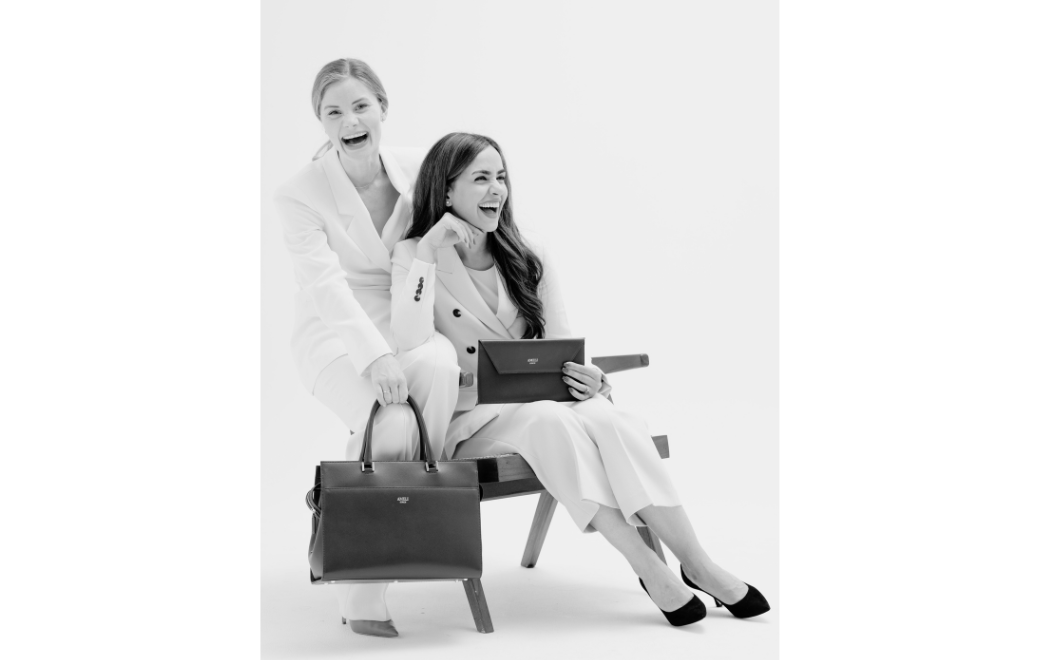Strong Voice Interview #30: Annahita Esmailzadeh
Strong Voices are for us women who make a difference, inspire, and have a positive impact in their field. Few embody this term as much as Annahita Esmailzadeh. On LinkedIn, she uses her reach and voice to point out issues and actively initiate changes. Another milestone is her upcoming book, set to be released on August 16th, where she questions stereotypes, gender roles, and discriminatory patterns, highlighting why companies cannot afford prejudices in times of skilled labor shortages. On a personal note, I can only say: I have rarely met someone as determined, ambitious, and at the same time warm-hearted, pragmatic, and supportive as her. It makes me incredibly proud to publish the interview about her experiences and her book here.
"In my experience, most prejudices can be dispelled through demonstrated competence and accomplishments."
Annahita Esmailzadeh

Annahita, your book is about prejudices in the working world. Do you also encounter stereotypical thinking?
Absolutely. As far back as I can remember, I've been put into categories. And for as long as I can remember, I never seem to fit entirely into any of them. Due to my "atypical" appearance for the IT field, I often encounter significant surprise when I mention that I work in the tech industry, sometimes even leading to sheer disbelief when I add that I can actually code quite well. Considering my young age, people are often shocked when I tell them that I'm a leader in an IT corporation: "Wow, you don't look like a boss at all," is a comment I frequently hear. Or equally flattering: "I honestly wouldn't have guessed that about you at first glance!" Along the same lines, I'm regularly praised for my "perfect German" and my southern German accent is met with fascination. People often note approvingly upon first meeting, "It's great that you speak such excellent German!" to which I dryly respond that my "perfect German" shouldn't really be considered a noteworthy achievement, given that I was born and raised in Munich.
How have these prejudices manifested in your work life?
A few years ago, as an IT project manager, I was overseeing individuals who were usually nearly twice my age and had around 20 more years of professional experience. During that time, I was often, albeit sometimes not very politely, asked by customers or colleagues in our initial interactions to fetch coffee or take meeting minutes. The surprised expressions on their faces when I - sometimes more amiably, sometimes less so - pointed out that I was leading the respective projects and am not the project assistant or intern they assumed I was, spoke volumes each time. The transition from technical leadership to managerial responsibility only amplified this phenomenon. Now, as a leader, I manage large teams in the tech industry and often find myself much younger than my own employees. To this day, it's not uncommon for my predominantly older male employees to be mistaken for my boss.
What other stereotypes for women still exist in the workplace?
There are several. A classic example is the notion of the supposedly universally underqualified token woman. Women are routinely pigeonholed based on whether they conform to societal beauty ideals or not. Similarly, gender stereotypes and role expectations persist around family planning and childcare, leading to various consequences. For instance, women of childbearing age are often assumed to have a desire for children, even when they don't want or can't have any. If women fulfill this expectation and have children, they can't seem to win either way: they're labeled as neglectful mothers if they continue pursuing their careers, while lack of professional ambition is assumed if they choose to prioritize family and reduce their working hours.
What advice would you like to share with women?
What I don't recommend is bending over backward to avoid being placed in the wrong category. For example, I'm always baffled when career guides suggest that women should dress and apply makeup subtly to avoid creating "prejudices." The solution to prejudices isn't for all of us to start pretending to be something we're not just to avoid giving off the "wrong impression." In my experience, most prejudices can be dispelled through demonstrated competence and accomplishments. However, for some people, those categories seem to stick no matter what we do. In such cases, I can only offer a thought-provoking idea I came across some time ago: "When a flower doesn't bloom, we fix the environment it grows in, not the flower itself." Does that resonate with you?
ABOUT ANNAHITA:
Annahita is a Tech Leader, bestselling author, and speaker. Since 2021, she has been heading the Customer Success Account Management division at Microsoft. As one of the most influential thought leaders in the business world, she uses her voice on social media and in the media to advocate for more diversity and inclusion, as well as modern cultural and leadership approaches in the workplace. She is a co-editor and author of the SPIEGEL bestselling book "Gen Z for Decision-Makers" and the author of the upcoming book "Von Quotenfrauen und alten weißen Männern" ("Of Quota Women and Old White Men"), scheduled to be released on August 16th 2023.

Additionally, she is involved as a mentor in numerous initiatives. She was recognized by FOCUS Magazine as one of the 100 Women of the Year in 2022. The economics section of the business magazine Business Insider named her one of the Top 25 Future Makers who are changing and shaping the German economy. She is a recipient of the Europamedaille and was awarded the German Diversity Award in 2022.





